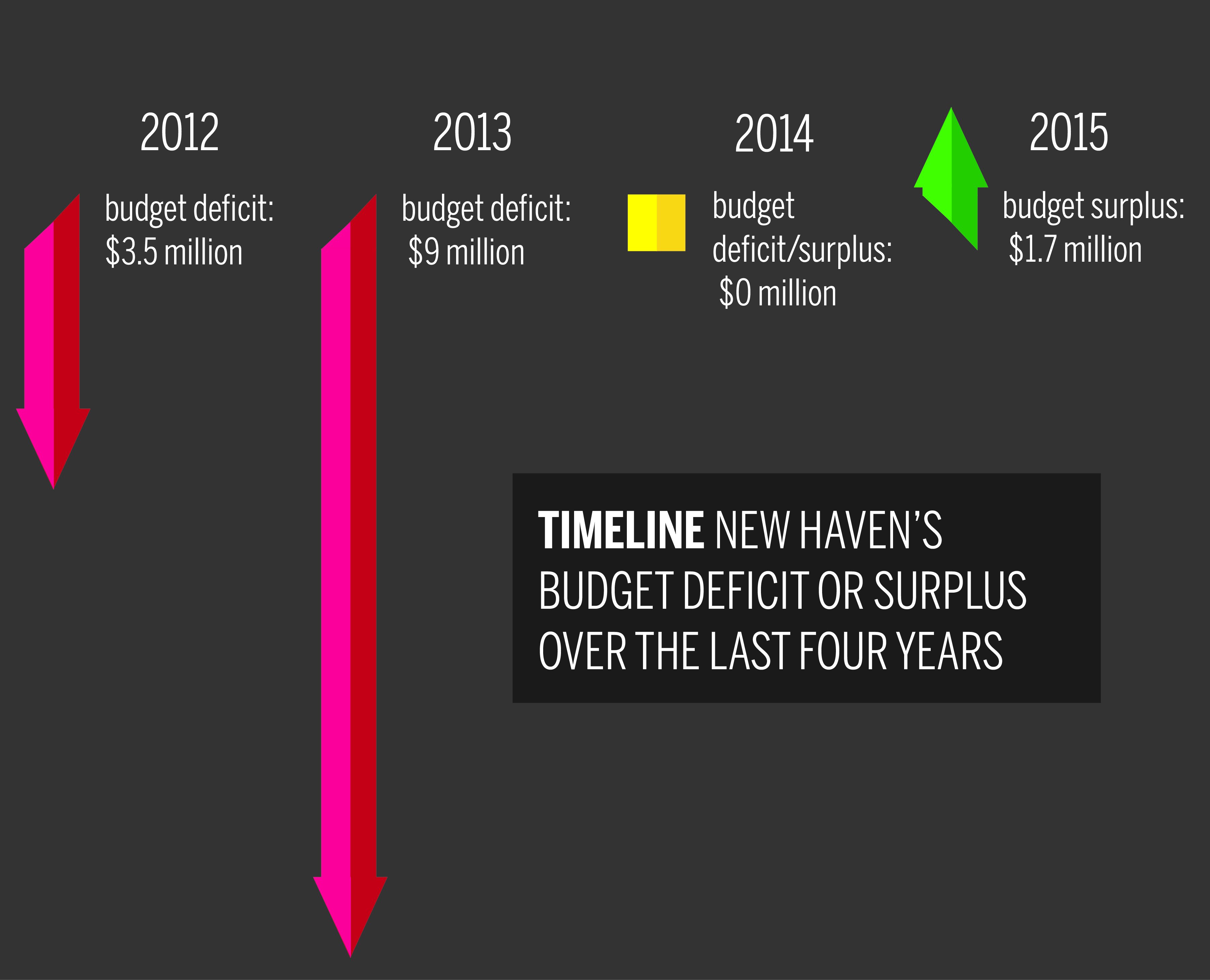
Disputes over New Haven’s finances and economy flared Saturday morning, as the three mayoral candidates clashed in their last debate of the campaign season.
Taxes, unemployment and economic development took center stage in the debate between Mayor Toni Harp and her petitioning challengers, plumbing company owner Sundiata Keitazulu and former city clerk Ron Smith. Coming under attack from Smith for the city’s high taxes and from Keitazulu for persistent unemployment among racial minorities, Harp defended her two-year-long record. Harp, the heavy favorite in Tuesday’s election, said her administration has worked to run budget surpluses, seek municipal funding reform from the state and stabilize the mill rate — the tax rate per $1,000 of property value.
Smith and Keitazulu, though unified in their criticism of Harp, disagreed with each other on how best to reduce unemployment in the Elm City. For his part, Smith said the city’s high taxes are stifling growth and preventing small businesses from thriving.
“Taxes are so high that we can barely make it — pay our house taxes, buy our food, pay our rent,” Smith said. “In a poor city, we’re paying way too much, and the legislators we’re voting in need to look at this because they represent us.”
Meanwhile, Keitazulu said he would raise taxes by 2 percent and look into a 0.5 percent budget cut in all city departments. The savings from those strategies would then be used to increase funding for education, he said.
Keitazulu identified the city’s low-performing schools as a prime contributor to the unemployment vexing the city. He said he would increase the amount of vocational training in schools, adding that job training must be a component of education in the city.
“We need funding to get this job done,” he said. “And I know people are talking about cutting taxes, but sometimes you have to make sacrifices. People made sacrifices to go to war. People made sacrifices for George Marshall’s recovery of Europe. We need a recovery in our own city.”
Keitazulu and Smith agreed on one point: not enough New Haven residents are working on the construction projects that have come to the city under Harp’s leadership. Keitazulu reiterated the criticism throughout the debate and Smith cited the ongoing construction on Prospect Street — where he said many of the construction workers do not come from Elm City neighborhoods in need of job opportunities — as emblematic of the employment problem.
Harp spent most of the debate on the defensive. Coming under attack from Smith and Keitazulu, she laid out the accomplishments of her two years in office and her vision for the future.
In response to criticism over high mill rate, Harp said she has worked to bring the city finances under control — no small task in light of the $9 million budget deficit that greeted her when she came into office.
Harp said the rate has stabilized at 41.55 — the 10th-highest in Connecticut’s 283 districts — for New Haven’s 2016 fiscal year. The stabilized mill rate means a more consistent tax rate for Elm City residents, Harp said. She added that the city’s tax base is beginning to expand — the total value of the city’s property has grown over the past year and building projects like 360 State Street gradually become eligible for taxation. But Harp said there is typically a seven-year waiting period before developments are fully exempt from the city’s tax break for new projects. As a result, New Haven will have to wait the better part of a decade until it sees full tax revenues from recent projects such as the Alexion Pharmaceuticals building on College Street.
Harp also fought against the criticism that residents have seen few of the benefits of economic growth during her time in office. She said programs like the Small Business Academy, which graduated its first class last month, “are making sure that growth means jobs are available for all residents.”
Harp said the city will look to the state for aid to lower the tax burden in coming years, repeating a statement she made during the first mayoral debate earlier this month.
“If everything remains constant — and that remains uncertain because the state is going through its own problems — New Haven will get another $14 million from the state that it didn’t get this year,” she said. “And if that maintains, then we really have an opportunity to reduce taxes and maybe do some of the things that we haven’t been able to do for years in this city.”
Harp said she would use the state payment to pay for understaffed and underfunded services like libraries, public works and the parks department.
In one of the debate’s tenser moments, Smith alleged that Harp and her administration are seeking to “run the unions out of New Haven.” Harp denied the claim, saying that she has no intentions of working against unions in New Haven.
“We have about 14 unions in New Haven, and I don’t think there’s a single one that can honestly say I’m trying to run them out,” she said.
The general election takes place on Tuesday.
Interested in getting more news about New Haven? Join our newsletter!







